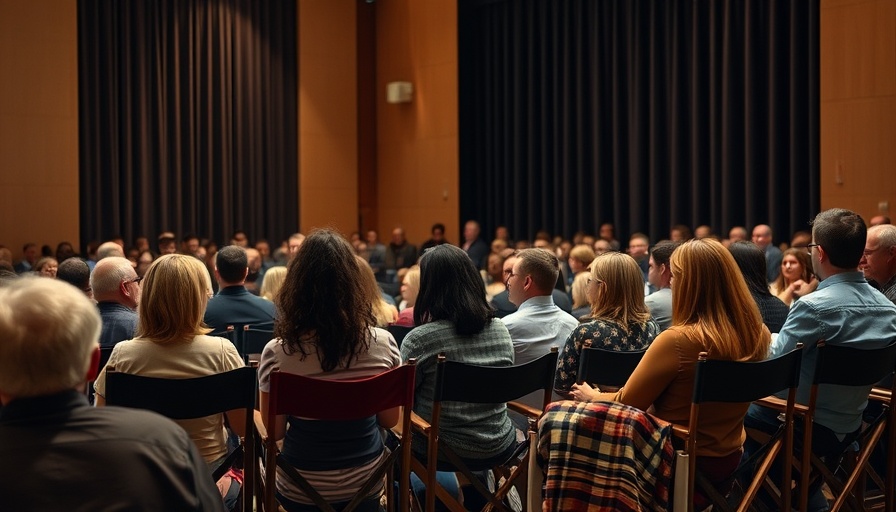
Cinematic Milestone: "Trapped" Unveils Mental Health Challenges for Immigrants
On May 22, 2025, the Harmony Gold Theater in Hollywood became the epicenter of a cinematic movement, marking the premiere of "Trapped." This enlightening film, created by the Eastern European Middle Eastern underscored cultural communities (EE/ME UsCC), tackles the delicate subject of mental health issues within Russian- and Farsi-speaking communities. Drawing attention to the unique challenges these communities face, the film serves not just as entertainment, but as a catalyst for crucial conversations around an often stigmatized subject.
Bridging Cultural Gaps Through Film: The Backstory
The production of "Trapped" was more than just a film; it was a collective effort to address intergenerational conflict and gender oppression impacting women's mental health. Spearheaded by film production manager Mastaneh Moghadam, this project included subtitles for FY 2024-25, creating accessibility for diverse audiences. The goal was clear: to break the silence surrounding mental health struggles experienced by many immigrants who grapple with their identities in a new land.
Empathy Through Storytelling: Unpacking the Film's Message
At its core, "Trapped" dives deeply into the often complicated mother-daughter relationships that reflect cultural expectations and gender roles prevalent in immigrant communities. By presenting relatable narratives, the film seeks to foster empathy and understanding, enabling viewers to reflect on their own experiences. According to mental health experts, storytelling is an effective means of challenging stereotypes and reducing stigma—a theme echoed in other mental health film initiatives around the world, including the Russian Mental Health Film Festival.
A Growing Movement: The Impact of Mental Health Film Festivals
As the conversation about mental health gains momentum globally, numerous film festivals like the Russian Mental Health Film Festival have emerged, dedicated to showcasing films that challenge stereotypes and promote empathy. These festivals cultivate an awareness of mental health issues, building a platform for films that explore emotional disorders and complex relationships. The focus here is not merely on entertainment but on initiating dialogues—exactly the aim of projects like "Trapped".
Expanding Reach: How "Trapped" Has Influenced Viewers
The initial reception of "Trapped" has been overwhelmingly positive, with over 1,300 viewers learning about the complex emotions that shape the immigrant experience. Following its premiere, the film was made available on YouTube, broadening its audience and facilitating ongoing discussions about mental health challenges faced by these communities. This digital outreach mirrors efforts seen at festivals like the Russian Mental Health Film Festival, which aim to proliferate important narratives even beyond geographical bounds.
Moving Forward: Actions for Community Engagement
The success of film projects like "Trapped" underscores the importance of community involvement in mental health awareness. By acknowledging cultural differences and collaborating with local communities, mental health initiatives can be more effective. Educational programs and panel discussions can supplement film screenings, offering a space for dialogue and healing. This holistic approach not only promotes understanding but also fosters a sense of belonging among immigrants—paving the way for a supportive environment.
For those in and around Bakersfield, engaging with this film could serve as a powerful reminder of the shared human experience, illuminating the path forward in mental health advocacy. Awareness is just the beginning; what comes next is the tangible support and reform within our mental health systems that we urgently need.
Join the Conversation: Learn More About Mental Health Initiatives
If you are interested in understanding more about mental health initiatives aimed at cultural communities, consider attending local screenings, exploring community forums, or participating in related events. Together, we can reduce stigma and ensure a healthier future for all.
 Add Row
Add Row  Add
Add 



Write A Comment